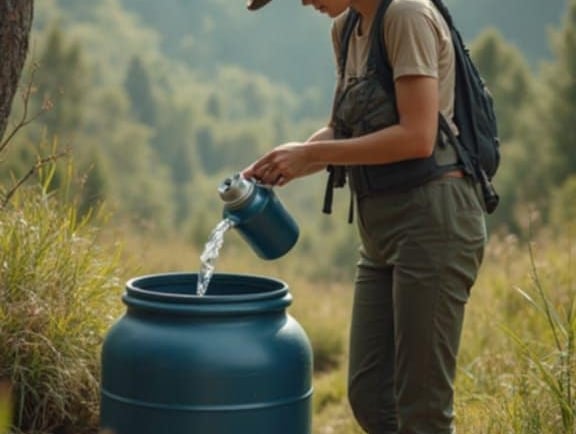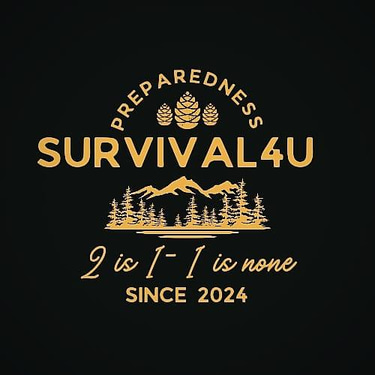Is water really that important?
Lets talk about water filtration. Have you ever had to filter water and how did you do it?
Mike s with help from chatGPT
3/30/20242 min read


Title: The Vital Role of Water Filtration in Survival Situations
In any survival situation, whether it's camping in the wilderness or navigating through a natural disaster, access to clean water is paramount. Water is essential for hydration, cooking, and maintaining overall health. However, in many outdoor or emergency scenarios, water sources may be contaminated with bacteria, viruses, parasites, or other harmful substances. This is where water filtration becomes crucial.
Understanding Water Contamination:
Water from natural sources such as rivers, lakes, and streams may appear clean, but it can harbor invisible pathogens and pollutants. Contaminants can come from various sources, including animal waste, agricultural runoff, industrial pollutants, and even human activities.
Consuming contaminated water can lead to severe illnesses such as diarrhea, cholera, dysentery, and typhoid fever, which can quickly escalate into life-threatening situations, especially in survival scenarios where medical help may not be readily available.
The Importance of Water Filtration:
Water filtration is the process of removing impurities, contaminants, and pathogens from water to make it safe for consumption. Filtration methods vary in effectiveness, but the goal is always to produce clean and potable water.
Removing Physical Contaminants: Filtration removes physical impurities such as sediment, debris, and suspended particles, which can affect water clarity and taste. This initial filtration step improves the overall quality of the water and makes subsequent treatment more effective.
Eliminating Pathogens: Filtration systems with fine pores or membranes can effectively trap bacteria, viruses, and protozoa, which are the primary causes of waterborne diseases. By removing these pathogens, water filtration significantly reduces the risk of illness and infection.
Chemical Removal: Some water filters incorporate activated carbon or other chemical treatment methods to adsorb or neutralize contaminants such as chlorine, pesticides, heavy metals, and organic compounds. This additional step enhances water quality and safety.
Choosing the Right Water Filtration Method:
Several water filtration methods are available, each with its advantages and limitations:
Portable Water Filters: Compact and lightweight, portable water filters are ideal for outdoor activities and emergency kits. They typically use a combination of mechanical filtration, activated carbon, and sometimes chemical treatments to purify water on the go.
Boiling: Boiling water is a simple yet effective method to kill bacteria, viruses, and parasites. However, it requires a heat source and consumes time and fuel, making it less practical in certain situations.
Chemical Treatment: Chemical disinfectants such as iodine tablets or chlorine dioxide can effectively kill waterborne pathogens. While convenient and lightweight, chemical treatments may leave a residual taste and require a waiting period for the disinfection process to complete.
UV Purification: UV water purifiers utilize ultraviolet light to deactivate bacteria, viruses, and protozoa. While highly effective, UV purification systems require batteries or a power source to operate, which may not always be available in survival situations.
Conclusion:
In any survival scenario, ensuring access to clean and safe drinking water is essential for maintaining health and increasing the chances of survival. Water filtration plays a vital role in removing contaminants and pathogens from natural water sources, making them suitable for consumption. Whether through portable filters, boiling, chemical treatments, or UV purification, having the means to purify water can be the difference between life and death in challenging environments. Prioritizing water filtration as part of your survival preparedness can significantly improve your resilience and ability to overcome adversity when faced with unforeseen circumstances.
